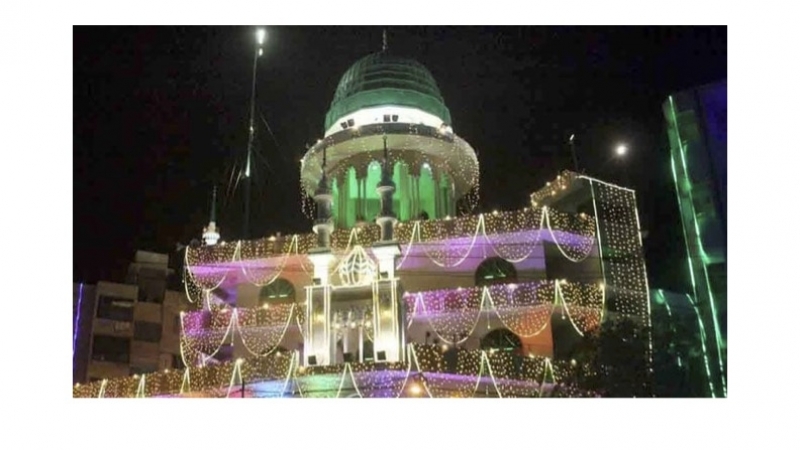



 Javed Akbar
Javed Akbar 
In the blessed month of Rabi‘ al-Awwal, Muslims worldwide celebrate the birth of the Prophet Muhammad (ﷺ).
Cities light up, public spaces glow with colour, adorned with banners and decorations.
It is a season of joy—and rightly so, for the Prophet’s (ﷺ) arrival was truly a mercy unto all the inhabited worlds (Al-Qur’an, Surat al-Anbiya [21]: verse 107).
Yet behind the brightness lies a painful reality: Muslims today are estranged from the very Sunnah they claim to honour.
The Prophet (ﷺ) embodied humility, honesty, justice, and simplicity.
His home was sparse, his meals modest, and his dealings transparent.
He warned against extravagance, calling wastefulness arrogance.
He ruled not through force but through moral authority, commanding loyalty through trust.
The contrast with today’s Muslim societies is stark.
Weddings and social events have become spectacles of vanity, driving families into debt.
Banquets overflow while the poor wait at the gates.
These are not celebrations of the Prophet’s (ﷺ) birth but a betrayal of his teachings.
This duplicity extends to governance.
Muslim rulers, responsible for delivering justice, have instead become emblems of corruption, authoritarianism, and servitude.
The rulers’ palaces gleam with gold, convoys flaunt luxury cars, and billions vanish into vanity projects while citizens endure unemployment, poverty and repression.
These rulers bow before Washington, London, and Paris—not from strategic necessity but from fear of their own people, whose consent they do not enjoy.
Instead, they coerce compliance to their whims.
Meanwhile, the collective strength of the Muslim world remains paralysed.
With a population approaching two billion, armies bristle with modern weapons, even nuclear arsenals.
Muslim countries, however, stand idle while Palestinians in Gaza endure relentless bombardment, starvation, and siege.
For almost two years, the zionist regime has waged a relentless campaign of devastation: children buried under rubble, hospitals reduced to ash, entire neighbourhoods erased—yet the world looks away.
The collective west, ever eager to lecture others about democracy and human rights, is fully complicity in the genocide of Palestinians.
The same capitals that erupt in outrage over Ukraine fall silent when Gaza is turned to dust.
International institutions that sanctify “never again” twist themselves into knots to justify Israel’s criminal acts.
Western regimes funnel weapons to sustain the bombardment while criminalising protest at home.
The hypocrisy is staggering: the cries of Palestinian children are somehow less audible, their lives deemed less valuable.
And Muslim armies?
Pakistan parades its lethal weapons, reportedly having a nuclear arsenal yet fails to move a finer to deter the slaughter.
Egypt tightens Rafah border while Gazans starve.
The Turkish ruler thunders from podiums while its trade with Israel flourishes.
Saudi Arabia marches toward normalization, while Gaza burns under siege and silence.
Neighbouring states—Jordan, the UAE, Qatar—are complicit in this unfolding genocide.
Even within civil society, piety often masks duplicity.
Beards, rosaries, and Qur’anic recitations are displayed publicly, while dishonesty stains business dealings and opportunism corrodes politics.
The Prophet (ﷺ), who warned that hypocrisy is among the gravest moral diseases, would have condemned such pretence.
Culturally, Muslims mimic foreign extravagance while neglecting their own heritage of moderation.
Weddings echo Bollywood spectacle rather than the Prophet (ﷺ) and his companions’ example of simplicity and sincerity.
Rituals abound, but substance is absent.
Yet the Prophet’s (ﷺ) life was never only a critique of corruption—it was a blueprint for renewal.
If Muslims truly wish to honour him, they must move beyond ceremonial celebrations toward meaningful reform.
His legacy demands honesty as the foundation of trust, moderation over waste, governance rooted in justice, and armies serving the people and the state—not sabotaging civilian rule.
Civilization means civilian rule, not the tyranny of generals.
Palestine is the ultimate moral test; no arsenal, however vast, can absolve the shame of failing to defend the oppressed.
Knowledge must be revived, uniting faith with modern learning to restore dignity and independence.
Above all stands character—for the Prophet (ﷺ) declared: “I was sent to perfect good character.”
Without integrity, no reform can endure.
With it, the Ummah can rise from shadows to light, honouring him not with words but with deeds.
Until Muslims anchor their lives in the Sunnah as a lived reality rather than a ceremonial slogan, the lights of Rabi’ al-Awwal will remain ornamental—bright to the eye, yet powerless to dispel the shadows of hypocrisy, injustice, and complicity.
The truest tribute to the Prophet (ﷺ) lies not in celebration but in emulation.
His Sunnah must cease to be a memory and return as compass.
Only then will the glow of Rabi’ al-Awwal illuminate not just our streets, but our societies and our future.
Javed Akbar can be reached at: mjavedakbar@gmail.com
